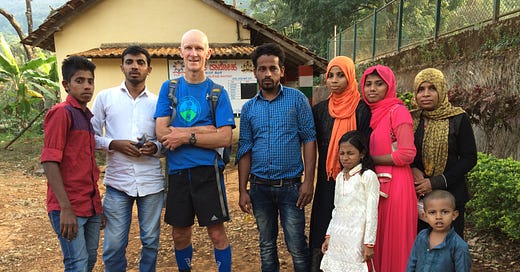Welcome (or welcome back to) Tony Fletcher, Wordsmith. Every weekend, I post a longish article exclusive to this page; during the week, I post a single Midweek Update of shorter, often news-related pieces. This particular weekend article is an unpublished, un-broadcast travel story from our family’s backpacking trip in 2016. If you like what you read he…
© 2025 Tony Fletcher
Substack is the home for great culture




